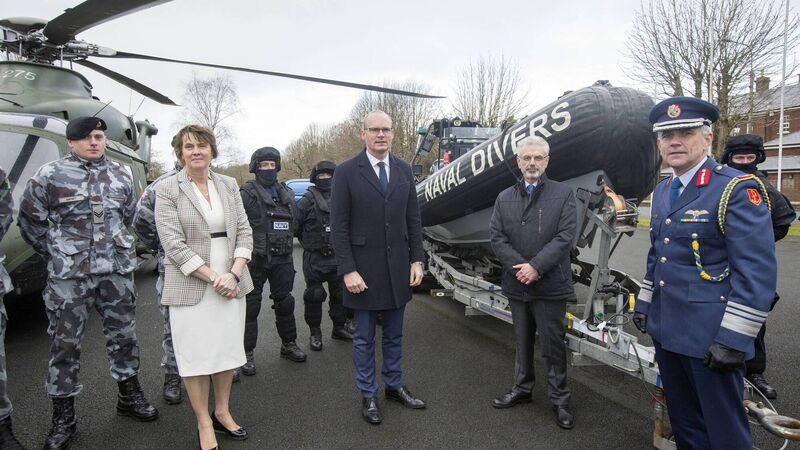Defence Forces win key funding battle — but is it enough to win the war?

Secretary-General Jacqui McCrum, Minister for Defence and Minister for Foreign Affairs Simon Coveney, Chief of Staff Lieutenant General Seán Clancy and Commission Chair Aidan O’Driscoll attend the launch of the Commission on the Defence Forces report at the United Nations Training School, The Curragh, Co Kildare. Picture: Julien Behal Photography
The Commission on the Defence Forces' report is the most comprehensive document of its kind on Irish defence that has ever been produced. It presents a more detailed analysis of the threats to national security, than heretofore made public, but draws short of listing these threats in order of priority.
The report is forthright — brutally honest, in fact — in listing the deficiencies in the capabilities of all four components of the Defence Forces: the army, air corps, naval service and the reserve.













